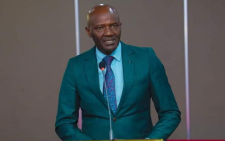Eyes now on MPs as Kenyans face new taxes

Kenyans are reeling from the devastating impacts of heavy rains and floods, compounding a difficult economic and polarized political environment. Traumatic weather-related events had by the end of last week left 267 people dead, 188 injured, 281,835 (56,367 families) displaced and 380,573 (76,114 families) affected, according to the National Disaster Operations Centre.
The State and Kenya Red Cross released grim data: 9,973 livestock lost, 41,562 acres of cropland and 61 roads damaged, 886 businesses, 1,967 schools, 1,465 water sources and 62 health facilities damaged in 11 counties.
As wananchi come to terms with the harsh reality of the forces of nature, the government faces sharp scrutiny over its management of the disaster’s humanitarian and economic implications. Of particular concern is the forced eviction of people living on riparian land, which although justified, was brutally executed with little empathy and compensation for those affected.
Still suffering from flood-related anguish, Kenyans have been jolted by the ghosts of the tax burden following the enactment of the contentious Finance Act, 2023 despite overwhelming public objection.
Kenya Kwanza MPs, whipped into compliance by President William Ruto, bulldozed the tax measures through. They covertly circumvented Article 118 (b) of the Constitution that requires Parliament to facilitate public participation and involvement in the legislative and other business of the House and its committees. Now the Finance Bill, 2024 has landed before the same parliamentarians, with proposals to introduce VAT on bread and higher levies on M-Pesa transactions, airtime, bank transfers, wines and spirits, a move likely to draw public indignation and litigation.
It proposes to raise Sh323 billion from these unpopular taxes and on motor vehicle circulation, motorcycle imports, betting, and payment from government supplies or tenders.
The Kenya Revenue Authority is lagging behind its targets, having collected Sh1.587 trillion in the nine months to March 2024 against a target of Sh1.932 trillion.
Such new tax moves and heavy-handed management of the recent floods evoke apprehension in constrained economic times for the majority, reigniting the highly inflammable national political atmosphere.
The relative calm generated by the National Dialogue Committee (NADCO) Report and the truce between bitter political rivals President Ruto and Opposition leader Raila Odinga seems to be tottering back its incendiary past.
Political jitters have risen after the High Court in Kiambu last month suspended the implementation of the negotiated NADCO report, which had been approved by Parliament. Azimio la Umoja has threatened to revive the deadly protests that heralded NADCO’s birth should there be attempts to block its implementation.
Matters have not been helped by disparaging remarks from Ruto’s hawkish allies on Raila’s bid for the top African Union (AU) Commission post. True, the AU bid championed strongly by Ruto played a part in the truce.
But it did not extract Raila’s acumen in negotiating and winning a powerful national political bargaining chip through NADCO, while also capitalizing on his continental networks to place himself in pole position for the AU job. His harsh criticism of the government’s handling of the floods and the latest Azimio leadership’s rejection of tax measures proposed in the Finance Bill, 2024 has the backing of the majority of Kenyans.
All eyes are now on Parliament to see whether legislators will shed the negative public perception that it has been “captured” by the Executive or will abide by the letter and spirit of the Constitution.
The writer comments on national affairs; albertoleny@gmail.com












